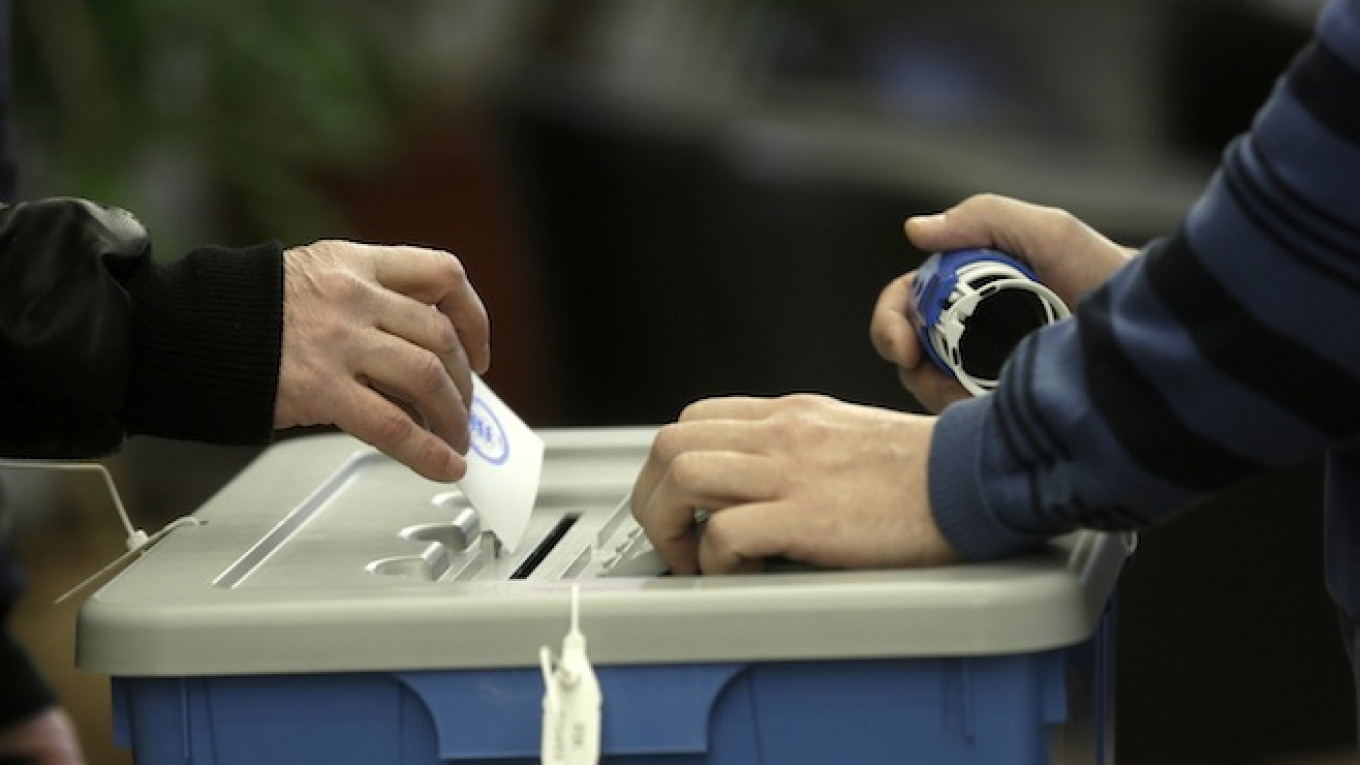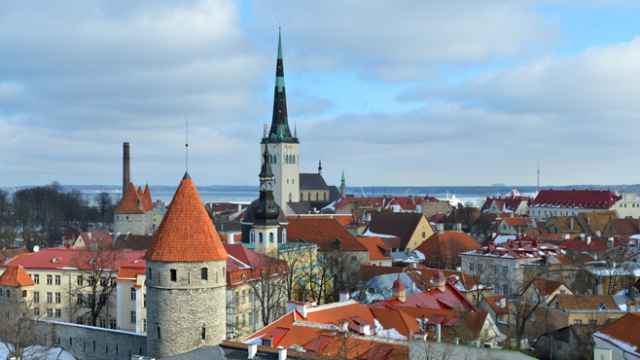Estonia's center-right prime minister has claimed victory in an election, cementing pro-NATO policies after a campaign dominated by fears of interference by neighboring Russia following Moscow's annexation of Crimea.
Taavi Roivas' Reform Party won 28 percent on Sunday, ahead of 25 percent for the opposition center-left Center Party that wanted Estonians to embrace a new policy of better relations with Moscow to ensure security for the small Baltic state.
The vote reaffirmed support for a coalition government that has urged the West to unite in deterring Russian President Vladimir Putin. Estonia has suffered more frequent breaches of its airspace by Russian military aircraft since Moscow annexed Crimea.
A free-marketeer, strongly pro-NATO and the youngest European Union leader at 35, Roivas is best placed to form a new coalition government and is likely to continue its conservative economic policies.
"Estonia has enjoyed a lot of success economically. We have been very open to our allies and we want to continue that path," Roivas said after claiming victory on Sunday night.
But the vote showed deep splits in Estonia. A quarter of Estonia's 1.3 million population are Russian speakers and about 70 percent of them support the Center Party, which signed a 2004 cooperation deal with Putin's United Russia Party.
"Silver medal shouldn't be a disappointment for anyone," Center Party leader Edgar Savisaar told supporters, the Baltic New Service said. "A party that represents so many people of Estonia can't be shunned or forced to be silent."
Some political analysts have warned that Russia could follow on from Ukraine and foment instability in Estonia, whether through Russian-speaking minorities, energy policy or cyber warfare, challenging NATO's ability to defend one of its smallest members.
Asked if he would work with the Center Party in forming a new coalition government, Roivas said: "Definitely not."
Still, he will have to widen his coalition from his current alliance with the Social Democratic Party since the two are now short of a majority in the 101-seat parliament. Forming a new coalition could take from days to weeks.
Under Reform-led coalition governments, Estonia has been one of few NATO members to keep defense spending at a NATO goal of 2 percent of gross domestic product.
Among causes of tension, Tallinn has accused Russian security service of abducting an Estonian anti-smuggling security officer from the border last year. Russia says the officer, now in jail in Moscow, was detained as a suspected spy.
Estonia's economic policy has also been consistently conservative since 1992 with a flat income tax and fiscal policy that eschews issuing government debt and aims for a balanced budget.
Its public sector debts for 2014 are projected at just 9.6 percent of GDP, against 175 percent for Greece. Unemployment was 7.4 percent in 2014, down from 16.7 percent in 2010 when the country was in recession.
A Message from The Moscow Times:
Dear readers,
We are facing unprecedented challenges. Russia's Prosecutor General's Office has designated The Moscow Times as an "undesirable" organization, criminalizing our work and putting our staff at risk of prosecution. This follows our earlier unjust labeling as a "foreign agent."
These actions are direct attempts to silence independent journalism in Russia. The authorities claim our work "discredits the decisions of the Russian leadership." We see things differently: we strive to provide accurate, unbiased reporting on Russia.
We, the journalists of The Moscow Times, refuse to be silenced. But to continue our work, we need your help.
Your support, no matter how small, makes a world of difference. If you can, please support us monthly starting from just $2. It's quick to set up, and every contribution makes a significant impact.
By supporting The Moscow Times, you're defending open, independent journalism in the face of repression. Thank you for standing with us.
Remind me later.






